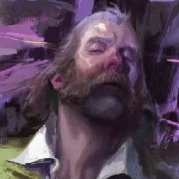Everything posted by VoivodBG
-
Svi žanrovi osim metala
- Nedeljna lista - predlozi
- Snimci sa koncerata
http://youtu.be/0vUc17A0SNY- Posteri
- Svi žanrovi osim metala
- Humor (i dalje bez HUMORA)
- 2018.07.12-15. *Petrovaradinska tvrđava, Novi Sad* Exit Festival 2018
- 2018.07.12-15. *Petrovaradinska tvrđava, Novi Sad* Exit Festival 2018
- Seven That Spells / Jastreb / Otrovna Kristina / TLLOA
https://seventhatspells.bandcamp.com/- Domaća scena - predlozi
- Nedeljna lista - predlozi
- Najlepše žene u svijet
- Bitipatibi
- JAZZ
- Svi žanrovi osim metala
- Svi žanrovi osim metala
- Nedeljna lista - predlozi
- Uređenje enterijera
- Obuća i odeća (WTFashion)
- Heretic Rites
- Svi žanrovi osim metala
- Nedeljna lista - predlozi
Fudge Tunnel su bili ispred svoga vremena, šteta je što se nisu održali. Gledam sada šta je novo radio Alex Newport i videh da ima projekat sa Matt Tong-om, bivšim bubnjarem Bloc Party, a sada u Algiers, zovu se Red Love, moraće da se posluša album sada.- Svi žanrovi osim metala
Account
Navigation
Search
Configure browser push notifications
Chrome (Android)
- Tap the lock icon next to the address bar.
- Tap Permissions → Notifications.
- Adjust your preference.
Chrome (Desktop)
- Click the padlock icon in the address bar.
- Select Site settings.
- Find Notifications and adjust your preference.
Safari (iOS 16.4+)
- Ensure the site is installed via Add to Home Screen.
- Open Settings App → Notifications.
- Find your app name and adjust your preference.
Safari (macOS)
- Go to Safari → Preferences.
- Click the Websites tab.
- Select Notifications in the sidebar.
- Find this website and adjust your preference.
Edge (Android)
- Tap the lock icon next to the address bar.
- Tap Permissions.
- Find Notifications and adjust your preference.
Edge (Desktop)
- Click the padlock icon in the address bar.
- Click Permissions for this site.
- Find Notifications and adjust your preference.
Firefox (Android)
- Go to Settings → Site permissions.
- Tap Notifications.
- Find this site in the list and adjust your preference.
Firefox (Desktop)
- Open Firefox Settings.
- Search for Notifications.
- Find this site in the list and adjust your preference.
- Nedeljna lista - predlozi






